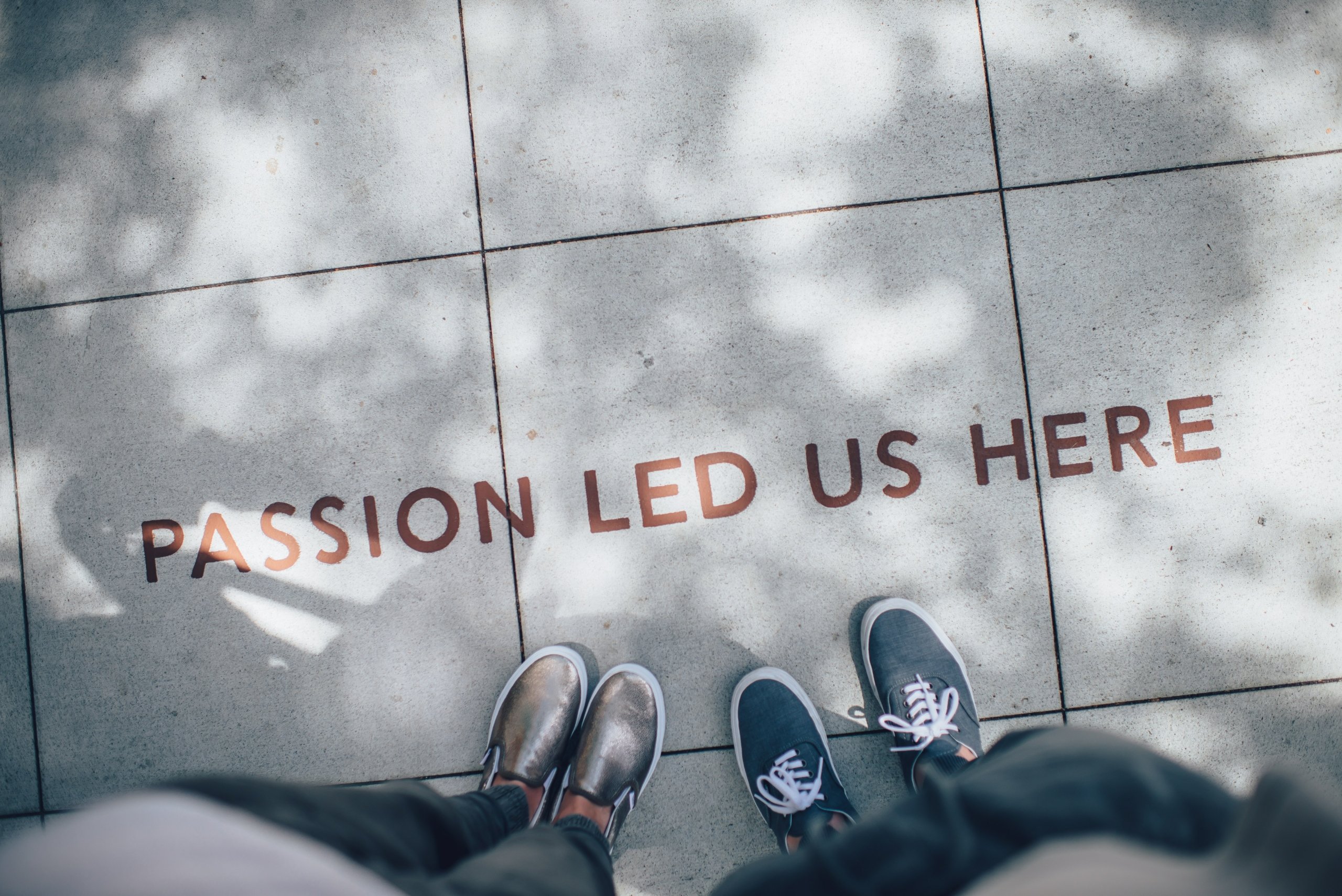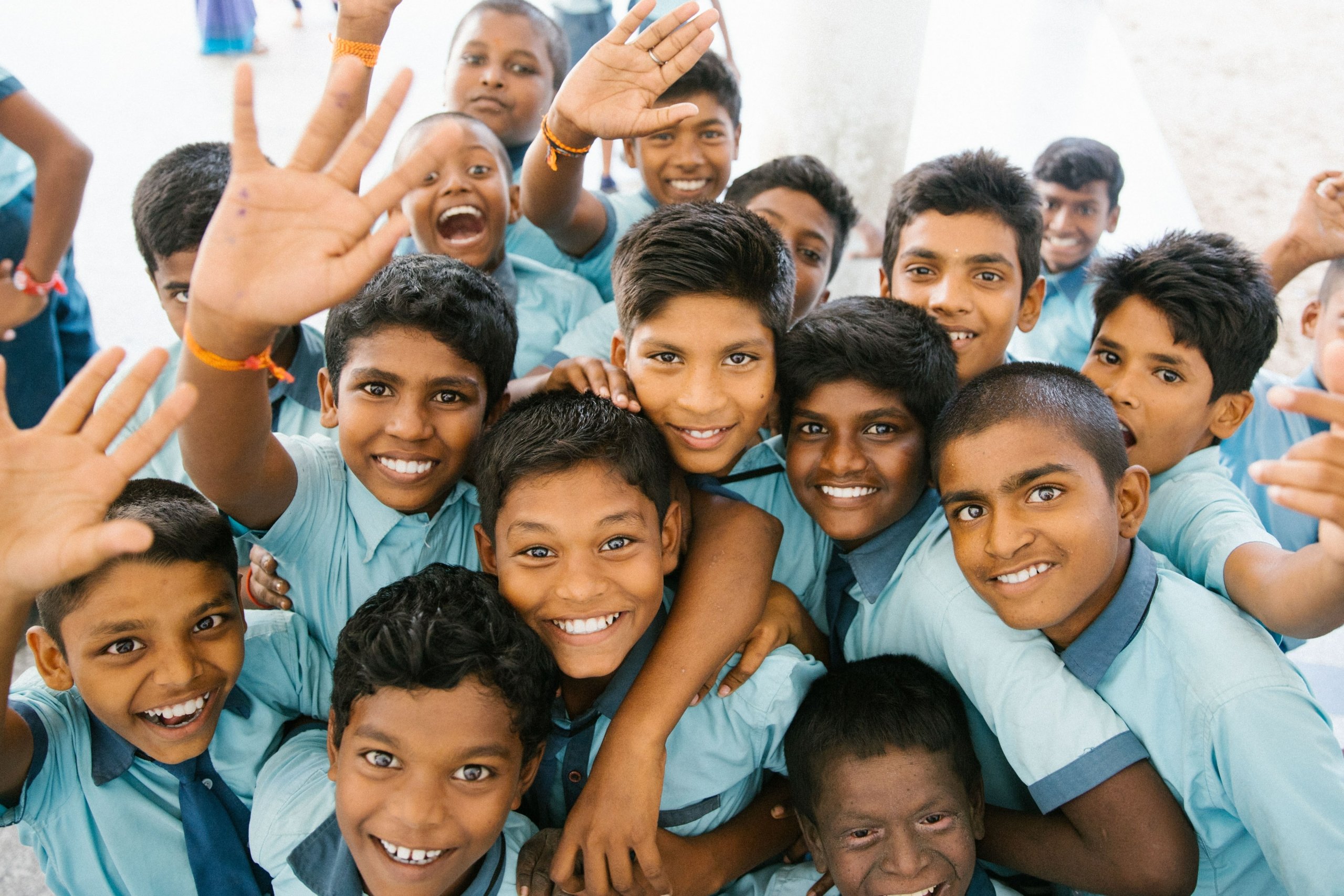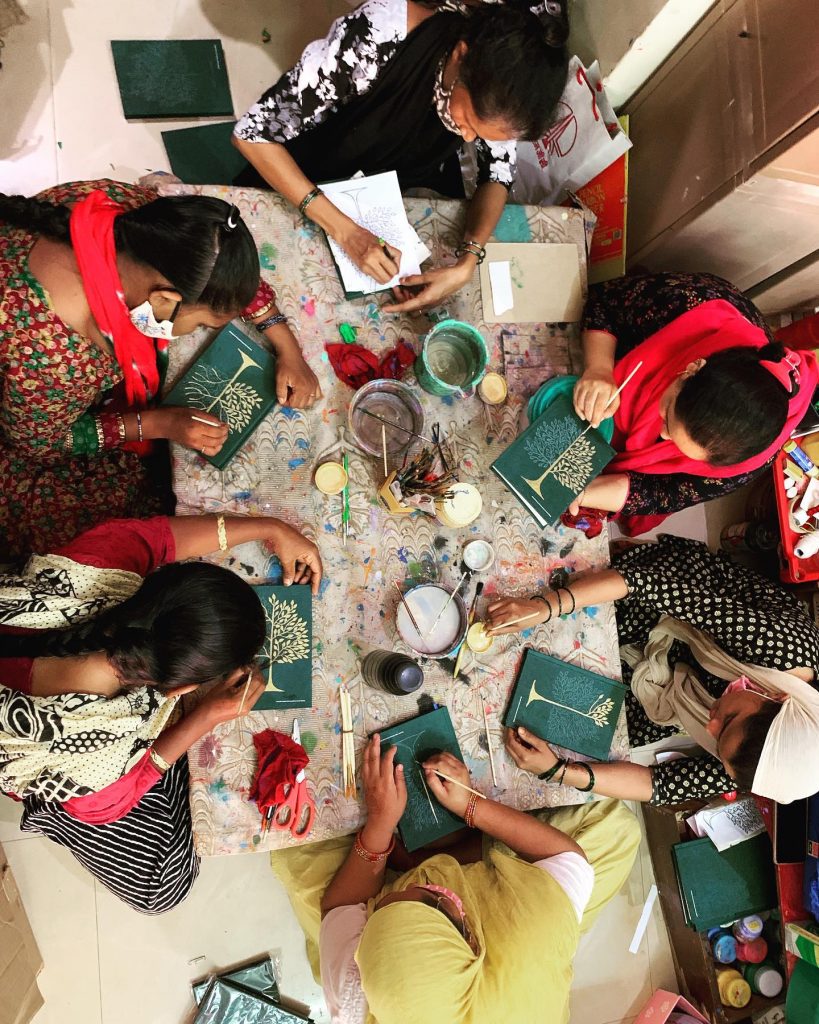 604
604  7 mins
7 mins Young changemakers in India are passionate about getting involved with change
“In class, one of my classmates said to me, ‘you can’t do this because you are a girl’. I think about that sentence every single day. It has pushed me to want to do something for the people and the world around me.”, says Druvishi, one of the promising “young changemakers” at Tribes for GOOD.
Tribes for GOOD is a social impact platform.
Young people come to Tribes from GOOD to learn how they can bring change to their communities.
Founded in Mumbai in 2018, Tribes for GOOD is now active in 7 cities in India and growing. In just three years, over 1,500 Indian youth have participated in work/study programs to learn the skills of social change making.
Learning to be a ‘changemaker’
After seeing the impact of young activists like Greta Thunberg and Malala Yousafzai, Mandeep Kaur (founder and CEO of Tribes for GOOD) realised that promising young people can be powerful changemakers. She also understood that change making skills could be learned and nurtured.
Mandeep also thought that young activists needed mentors.
The problem, she thought, is that schools, at times, do not train youth with the skills they need to make social change.
And although there are many role models, there are not that many mentors for young activists.
So Mandeep decided to launch Tribes for GOOD.
“I wanted to engage with young people who are passionate about being involved in change.” The idea was to create structured learning journeys for budding activists.
Young people could learn about social enterprise. They would also get the support they needed for their projects.
Mandeep has a dream – that social enterprise becomes an attractive and viable career path for young people everywhere.
“Just imagine if the entire world was thinking about social and environmental causes”, she explains. “We are giving young people inspiration and helping them act on it. Our ambition is to spark 1 million young changemakers in India and worldwide”
Mandeep Kaur, recently sat down to talk with us about Tribes for GOOD and some of the rising young changemakers in India that are sparking a movement.
(As always, portions of these interviews have been edited for concision and clarity)
‘You can’t do this because you are a girl’.
I think about that sentence every single day.

Image: Ian Schneider/Unsplash
Introducing young changemakers in India to social enterprise
So tell us about what you are doing at Tribes for GOOD and why you started working with young changemakers in India.
Mandeep Kaur: Well, on one side, we work with nonprofits and social enterprises in India. These are organisations that are working on the U.N.’s 17 sustainable development goals.
Our focus is capacity building. For example, we work with them on their marketing, organising events or helping them with their operations.
Because of a lack of funds, nonprofits and social enterprises cannot always attract the right talent. They are not able to pay salaries on the same level as corporations.
And although they have always been underfunded, Covid-19 has grown that divide.
And on the second side, we work with individuals, young people.
They can be high school students, college students, or young professionals with one or two years of experience.
These are Gen Z and millennials who ‘want to give back’ but are not really sure what to do. They are extremely active on social media where they talk about everything that is happening around them. Their hyper-awareness of the connected world that they live in encourages them to want to make a difference in this world.
But when it comes to real action, they need support.
This is where we come in – we bridge this gap.
What we teach is that ‘when you are giving back to society, you are also helping yourself.’
When someone gives back they feel happy, fulfilled. It’s the feeling of making a difference.
Giving back is always about the person that you are helping, but it’s also about you too.
“I have a doubt”
Can you tell us about some of the projects that you are working on right now?
MK: One of the top programs that we are running right now focuses on education and digital inclusion.
The impact of Covid-19 has been crazy, schools have been shut, students are out of school. It’s quite serious in a developing country like India. Many students may never come back to school. They might get an employment opportunity, which is child labour. Or they might get married.
So we are not just looking at ‘education’. It’s a problem with larger consequences.
In response to this, we launched a campaign called “I have a doubt!”
It is for students that are first-generation learners. These students don’t have anyone in their family who can help them with school. They don’t have exposure to people for support.
We set up classes for these students and our young changemakers become their teachers. We use zoom. The work is primarily in Hindi because the level of comprehension in English is sometimes not really great but we also use local, regional languages.
We are innovating and try to use interesting content like YouTube videos. We use a lot of quizzes and make the classes interactive to engage shy students, the ones who don’t usually raise their hands in the class.

Image: Church of the King/Unsplash
Social entrepreneurship for change
Can a changemaker come to TribesforGOOD with their own idea? What does that journey look like?
MK: Yes. We call that the ‘social entrepreneurship program’.
Students come to us with so many ideas. Some examples are animal welfare, disability or financial and digital literacy.
When they come to us with the idea we ask them to explain why they want to do it.
Then we do the research.
When you are looking at the social impact space, the first step is always research.
We teach them that they need to understand who they want to help and why. And they need to understand in what specific areas they can help.
So before anyone comes into the program we do all that.
Where ideas become reality
Ideally, a student would first complete the ‘young changemakers program’ which would give them the tools they need before starting their own enterprises.
But we also have students who have already started their own enterprise. Maybe they have already reached out into a community but they get stuck and they come to us for help.
To give you an example, we recently had a group of changemakers that started an enterprise of reusable menstrual pads.
They had found a manufacturer. The kit looked beautiful, and it’s reusable!
But they were looking at expanding. They are looking at managing a team, hiring, and working with volunteers. These are operational issues.
When someone like this comes to us, we can help them with different aspects.
We helped them understand how to create access to their products.
We also helped them understand how to raise general awareness of the topic. Menstrual health and hygiene is still a big issue in a country like India. And even though people have spoken about it, there is a need to continue the conversation and include boys and men.
So we helped them see what could be done in that domain.
To do this we brought in mentors.
The mentors bring ongoing experience. They have either worked with other organisations or they themselves have been leaders of social enterprises.
The mentor’s role is to basically break down the bigger concepts into very simple steps and give them the support they need so they don’t feel alone or overwhelmed by the work.
Tribes for GOOD works with nonprofits and social enterprise partners that focus on the 17 SDG’s – the United Nations’ sustainable development goals. What are your partners currently working on?
Education – access then engagement
MK: Right now we are focusing on 3 of the SDG.
We already talked about education.
I would just add that with education our first focus was access. Last year we focused a lot on increasing access to electronic devices.
Now the devices are in place and we have shifted to stakeholders – teachers and students – to see how we can help students learn.
Gender and skilling
The second is gender and more specifically, the female gender.
For example, right now some of our young changemakers who are interested in gender and skilling are organising an event with Aftertaste. Aftertaste is a partner that trains and employs women from low-income backgrounds.
The women are unskilled and they are trained to become artisans. They create beautiful products such as bags, dharis, dream catchers and lamps to make a living.
Unfortunately, because of the pandemic, the women could no longer sell their items in person. They needed support to find alternative ways to sell their products.
So we are organising “Shop For A Cause”. It’s an online event for buyers.
By organising the event we are helping these women and Aftertaste to sell their products and earn more money.
At the same time, our young changemakers get to work on things like skilling the women and working with them on financial and digital literacy. They are also learning the details of things like social media marketing, product promotion, event organisation, planning and online methods of payment.

Women from Aftertaste “art for empowerment” crafting notebooks for sale. Image courtesy of TribesforGOOD
Health and helping people to know their rights
The third domain we are focusing on is health, particularly health insurance and life insurance.
Because of Covid-19, unfortunately, we have seen so many people in India who are dying. This means that the breadwinners of the family are not there for many families.
The question is ‘How can these families claim for life insurance that is accessible to them from the government of India?’
We are creating an open-source document to answer these questions. The document will be accessible to all non-profits across India.
These are incredible projects for high school students! What inspired you to start working with young changemakers in India?
MK: The inspiration has always come from the question, ‘How do you give back?’
When you look at what I call the ‘solutions space’, it is not always considered the most exciting space to work in.
How many young people grow up saying ‘I’m going to become a social entrepreneur’?
I am working in this space so that it can become a mainstream entity along with industries like fashion, banking, airlines, telephone, telecom etc. You never think of those industries as a ‘service to society’.
And you never question the salaries that are being paid or the amount of money that these industries charge customers.
But when you look at the nonprofit or social enterprise space, people somehow automatically think that the work should be done for free.
I see this becoming a mainstream industry that attracts talent.
An industry where people say ‘I want to work here because I’m passionate about it and I will also get the lifestyle that I’m looking for.’ The whole point for me is to make this an exciting, impactful industry that is remunerated as per other industries.
That’s why I started TribesforGOOD.
Just imagine if the entire world
was thinking about social and environmental causes.
Imagine an entire generation…
That’s a powerful idea. What does the future look like for TribesforGOOD?
MK: Our goal? It’s to see 1 million young changemakers, in India and worldwide.
We’ve been developing the idea in India and now we are looking at how we can go beyond.
Right now we are looking at how we can take the idea to other countries in southeast Asia like Vietnam, Cambodia and Sri Lanka.
At the same time, we are also looking at how we can get more people involved.
We’d like to get the entire Gen Z and Millennial generations speaking out on the causes that they are passionate about.
Just imagine an entire generation taking on this challenge.
For more about Tribes for GOOD some of the upcoming young changemakers in India
Learn more about the work and programs at Tribes for GOOD on their website tribesforgood.com
Follow their work with young changemakers in India on Instagram, Twitter, Facebook or LinkedIn
If you liked this article you may also like “The students behind the ‘Saving Tuvalu’ online campaign”
Feature photo credit: Church of the King – Unsplash


 https://www.shutterstock.com/fr/image-photo/young-woman-walking-on-suspended-wooden-105456272
https://www.shutterstock.com/fr/image-photo/young-woman-walking-on-suspended-wooden-105456272 https://unsplash.com/photos/NsPDiPFTp4c
https://unsplash.com/photos/NsPDiPFTp4c